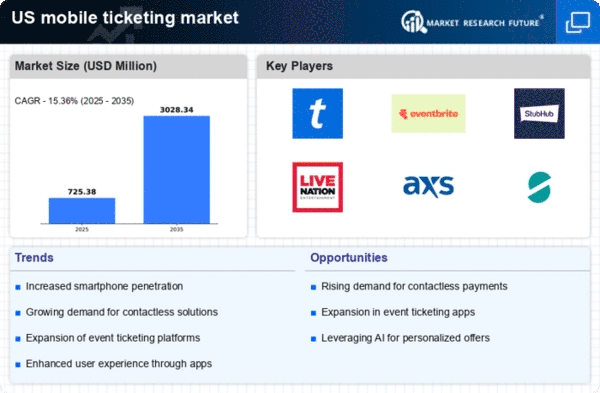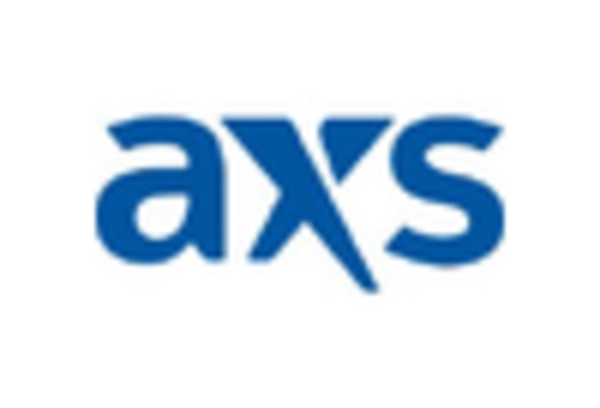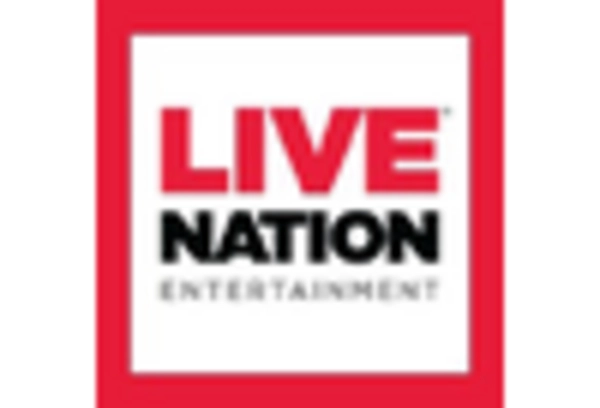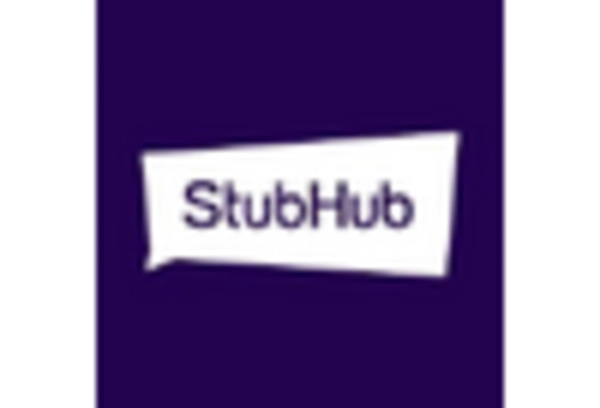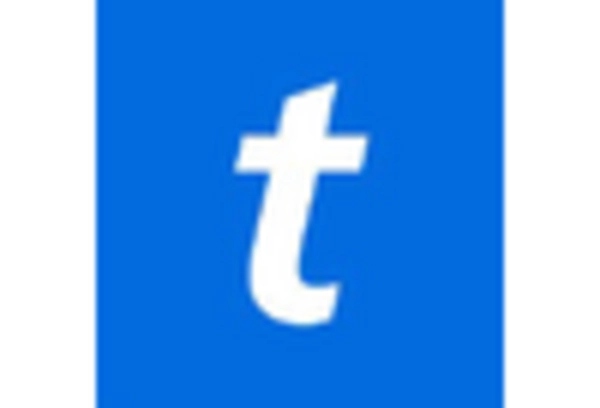Rise of Mobile-First Consumer Behavior
the mobile ticketing market is influenced by the rise of mobile-first consumer behavior., as more individuals rely on smartphones for everyday transactions. In 2025, it is estimated that over 80% of consumers in the US use their mobile devices for purchasing tickets, reflecting a fundamental shift in shopping habits. This trend is further fueled by the proliferation of mobile applications that offer user-friendly interfaces and personalized experiences. As consumers increasingly prefer mobile platforms for ticket purchases, businesses are compelled to adapt their strategies to meet these expectations. The mobile ticketing market is likely to expand as companies invest in mobile app development and marketing initiatives aimed at engaging this mobile-first audience. Consequently, the alignment of business strategies with consumer preferences is expected to drive growth in the mobile ticketing market.
Growing Demand for Sustainable Solutions
the mobile ticketing market is influenced by the growing demand for sustainable solutions among consumers.. As environmental awareness rises, many individuals are seeking eco-friendly alternatives to traditional paper tickets. The mobile ticketing market offers a viable solution by reducing paper waste and minimizing the carbon footprint associated with ticket production and distribution. In 2025, surveys indicate that over 60% of consumers in the US are willing to switch to mobile ticketing options if they contribute to sustainability efforts. This shift not only aligns with consumer preferences but also encourages businesses to adopt mobile ticketing solutions as part of their corporate social responsibility initiatives. Consequently, the mobile ticketing market is likely to expand as more organizations recognize the importance of sustainability in their operations and marketing strategies.
Expansion of Event and Transportation Sectors
the mobile ticketing market benefits from the expansion of various sectors, particularly events and transportation.. As the entertainment industry continues to grow, more venues and event organizers are adopting mobile ticketing solutions to streamline entry processes and enhance customer experiences. In 2025, it is projected that the event ticketing segment will account for approximately 50% of the mobile ticketing market share in the US. Similarly, the transportation sector, including public transit and ride-sharing services, is increasingly integrating mobile ticketing options to facilitate seamless travel experiences. This expansion not only drives revenue growth for businesses but also encourages consumers to embrace mobile ticketing as a convenient alternative. As these sectors evolve, the mobile ticketing market will witness sustained growth, driven by increased consumer demand for efficient and accessible ticketing solutions..
Increased Focus on Security and Fraud Prevention
Security concerns have become a pivotal driver in the mobile ticketing market, as consumers demand safer transaction methods. The rise in digital fraud has prompted companies to invest heavily in advanced security measures, such as encryption and tokenization, to protect user data. In 2025, it is estimated that around 40% of consumers in the US prioritize security features when choosing mobile ticketing solutions. This heightened focus on security not only enhances consumer confidence but also encourages wider adoption of mobile ticketing systems. As businesses implement robust security protocols, the mobile ticketing market is expected to grow, with a projected increase in user engagement and transaction volumes. Furthermore, regulatory compliance with data protection laws is likely to drive innovation in security technologies within the mobile ticketing market.
Technological Advancements in Mobile Payment Systems
the mobile ticketing market is surging due to rapid technological advancements in mobile payment systems.. Innovations such as Near Field Communication (NFC) and QR code scanning have streamlined the ticket purchasing process, making it more efficient and user-friendly. As of 2025, approximately 70% of consumers in the US prefer mobile payments over traditional methods, indicating a significant shift in consumer behavior. This trend is likely to drive the mobile ticketing market further, as businesses adopt these technologies to enhance customer convenience. Moreover, the integration of biometric authentication methods is expected to bolster security, thereby increasing consumer trust in mobile ticketing solutions. As technology continues to evolve, the mobile ticketing market is poised for substantial growth, with projections suggesting a compound annual growth rate (CAGR) of around 15% over the next five years.


